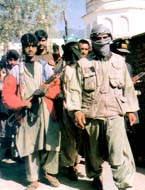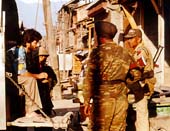India has done much better in the second half of the
century than it managed to do in the first half
Jay Dubashi continues our series of reflections on fifty years of freedom
Fifty years ago, about the time India became free, I lived in
a small village outside London. And on Independence Day,
when India made her famous tryst with destiny, I was making plans
for a cycle tour of Wales. My family was five thousand miles away
in Goa, and the farthest any of them had ever ventured out of
Goa, was to nearby Bombay.
Fifty years later, I am in Delhi, a thousand miles away from
home, my son is in California, ten thousand miles away and we
have no family in Goa. In a short spell of fifty years, we have
become a rootless lot, the fate of all societies on the move.
Fifty years from now, there may be very few of us -- I mean Dubashis --
in India. They will be roaming the earth, as only westerners used
to do, and many of them may not even know that they came from
Goa.
This is now true of most middle class families in India, few of
whom do not have a member or two living away from their hearths.
It is certainly true of city-based families. Between a fifth and
a quarter of people in India's teeming cities are outsiders. They
were certainly not born there. Bombay used to be a Maharashtrian
city before Independence. No more. Even Pune, that quintessential
of Maratha cities is getting less and less so. And in tiny Goa,
every fourth person is an outsider.
Independence has brought 'movement' to Indians, literally
so. For a thousand years, only a handful ventured outside their
villages and towns. Now, change has become a fact of life. And
since nobody keeps moving unless s/he expects to improve
his/her prospects, change has meant a better life in material
terms, better jobs, better education, bigger incomes and better
prospects all round.
 This is still not reflected in the way the economy has moved.
It is true that India has not done as well as other countries
in Asia, but it has done much better in the second half of the
century than it managed to do in the first half. Until Independence,
the Indian economy was virtually stagnant. After Independence,
it has moved ahead at a rate at least twice as much as it did
before 1947. The spatial movement of Indians has, however, been
faster than the movement of the economy itself.
This is still not reflected in the way the economy has moved.
It is true that India has not done as well as other countries
in Asia, but it has done much better in the second half of the
century than it managed to do in the first half. Until Independence,
the Indian economy was virtually stagnant. After Independence,
it has moved ahead at a rate at least twice as much as it did
before 1947. The spatial movement of Indians has, however, been
faster than the movement of the economy itself.
The fact that Indians are on the move also means that they have
become more Indian. When you are transplanted to a strange new
place, you try to look for something you can hold on to as your
own. It can be your ethnicity, but that differentiates you from
others instead of bringing you closer to them. The only thing
that can bring you closer and yet keep your identity is your sense
of nationhood. Indians are more Indian today, instead of being
more Marathi, or Bengali or Madrasi, than they ever were in the
last thousand years.
India too has changed. It is now a nation-state, instead of being
just a triangular shape on the map. It was never much of a nation-state,
though all the ingredients of a nation were there. The nation-state
is a vessel that holds the nationhood together. In the last fifty
years, India has developed such a vessel, which also makes it
easier for Indians to be Indians, something they were seldom before.
 It is this strong sense of national identity that has enabled the
state to fight off the insurgencies on its borders, first in the
northeast, then in Punjab and Kashmir. Thousands of Indians have
died in the process. It has also made the Indian government bold
enough to stand up and say no to Western powers on the issue of
CTBT. This would have been unthinkable fifty years ago.
It is this strong sense of national identity that has enabled the
state to fight off the insurgencies on its borders, first in the
northeast, then in Punjab and Kashmir. Thousands of Indians have
died in the process. It has also made the Indian government bold
enough to stand up and say no to Western powers on the issue of
CTBT. This would have been unthinkable fifty years ago.
The next fifty years will be very trying as other forces will
come into play, as they always do in the life of a developing
nation. During the first fifty years of Independence, India's
polity was strong, its economy weak. All its energy went into
making the country a strong nation-state. In the next fifty years,
the economy will get stronger, but the country will have to be
on guard to see that the polity remains strong too.
| 
